All Research Articles
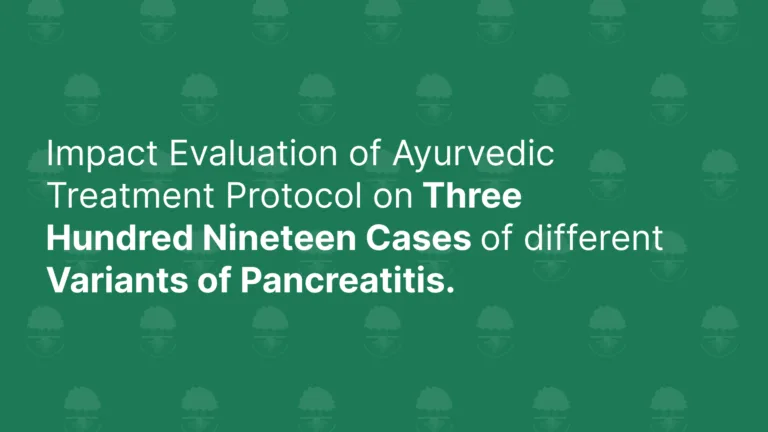
Impact Evaluation of Ayurvedic Treatment Protocol on Three HundredNineteen Cases of Different Variants of Pancreatitis
Pancreatitis, affecting the pancreas' function, causes symptoms like pain, nausea, and weight loss. Conventional treatments are limited, prompting many to seek alternative medicine. A North India Ayurvedic clinic successfully treated 319 cases of Recurrent Acute/Chronic Pancreatitis using a specialized Ayurvedic Treatment Protocol (ATP), including the formulation Amar. This treatment improved weight and reduced attack frequency without side effects. Ongoing research is exploring its potential.
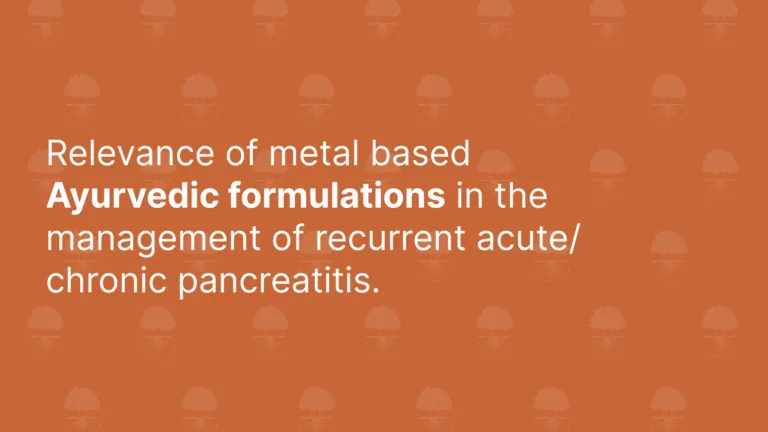
Relevance of metal based Ayurvedic formulations in the management of recurrent acute/ chronic pancreatitis
This study reports on 250 cases of Recurrent Acute Pancreatitis (RAP) and Chronic Pancreatitis (CP) treated with an Ayurvedic herbo-mineral formulation, along with a balanced diet and lifestyle changes. Significant improvement was seen in patients who completed the treatment.
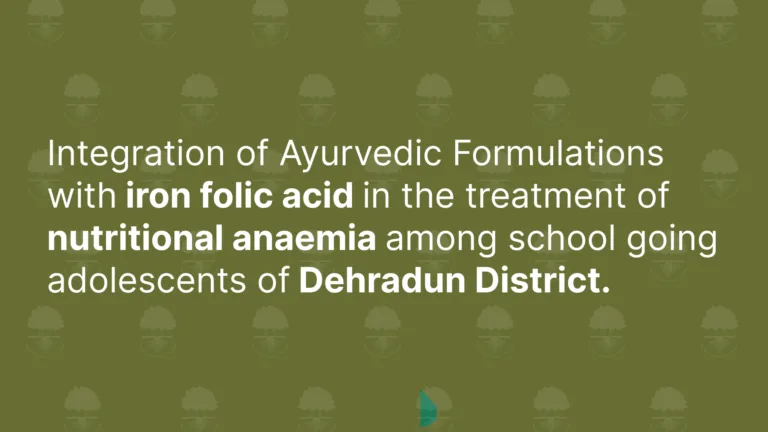
Integration of Ayurvedic formulations with iron folic acid in the treatment of nutritional anaemia among school going adolescents of Dehradun District
This study evaluated the effect of Ayurvedic preparations Sootshekhar Rasa (SR) and Sitopaladi Churna (SC) with iron and folic acid (IFA) on nutritional anaemia in 820 adolescents in Dehradun, India. After 90 days of treatment, all groups showed increased haemoglobin levels, with the best results in the group receiving SR + SC + IFA. No major side effects were reported, and the treatment led to sustainable improvements in anaemia.
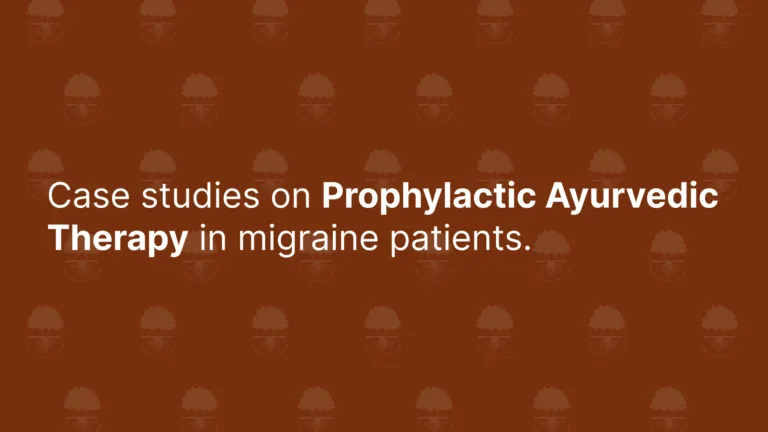
Case studies on prophylactic ayurvedic therapy in migraine patients
Ayurvedic treatment has shown effectiveness in managing migraines. A protocol (ATP) with herbo-mineral formulations, regular meals, and sleep reduced migraine frequency and intensity in a study of nine patients. Five reported significant improvement after 120 days, with no serious side effects. Ongoing research is further validating the findings.
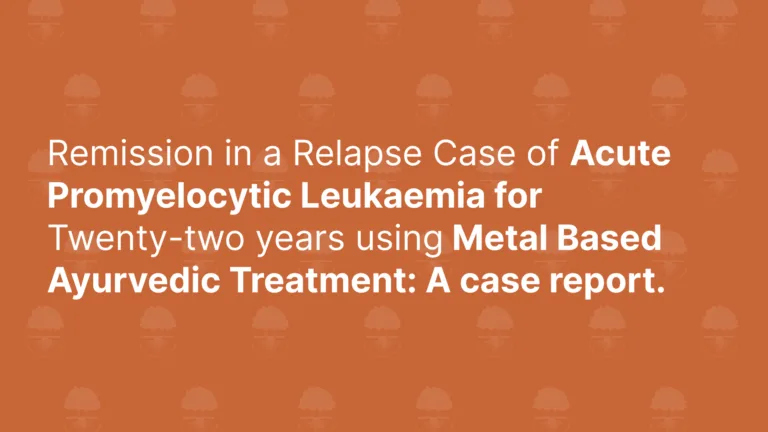
Remission in a Relapse Case of Acute Promyelocytic Leukaemia for Twenty-two years using Metal Based Ayurvedic Treatment: A Case Report
Acute Promyelocytic Leukemia (APML) is a blood cancer with symptoms like anemia, fatigue, and easy bleeding. While modern treatments improve outcomes, relapses and side effects persist. This case report discusses an APML patient who, after relapse, opted for Ayurvedic treatment with metal-based formulations, achieving remission within weeks. The patient has remained disease-free for 22 years.
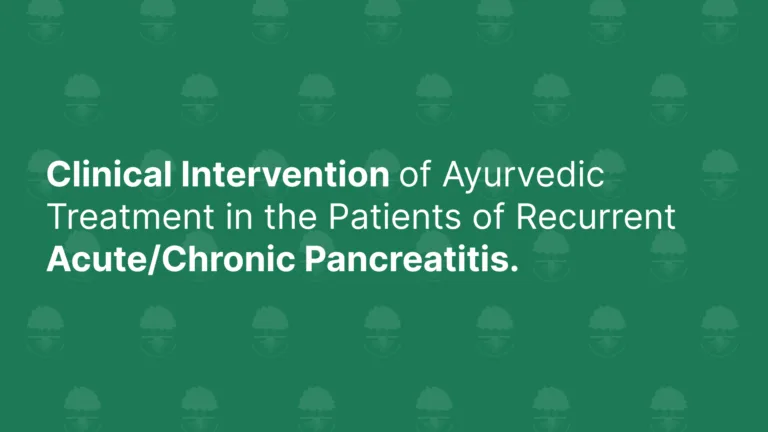
Clinical Intervention of Ayurvedic Treatment in the Patients of Recurrent Acute/Chronic Pancreatitis
The study of 1233 acute pancreatitis patients found that 12.9% experienced oral feeding intolerance (OFI). Risk factors included younger age, male sex, alcohol use, smoking, non-biliary etiology, and SIRS at 48h. SIRS at 48h (OR 2.85) and non-biliary etiology (OR 1.77) were independently linked to OFI, with biliary etiology being protective.
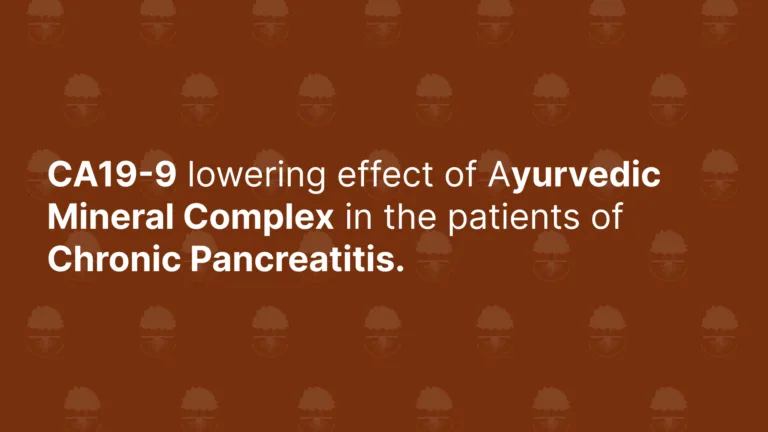
CA19-9 lowering effect of Ayurvedic Mineral Complex in the patients of Chronic Pancreatitis
CA19-9, a marker for pancreatic cancer, is elevated in pancreatitis and some gastrointestinal cancers. An Ayurvedic Mineral Complex (AMC) has shown promise in lowering CA19-9 levels in pancreatitis patients. This finding could lead to further research on AMC as a preventive therapy for pancreatic cancer in such patients. This study reports on 43 pancreatitis patients treated with AMC.
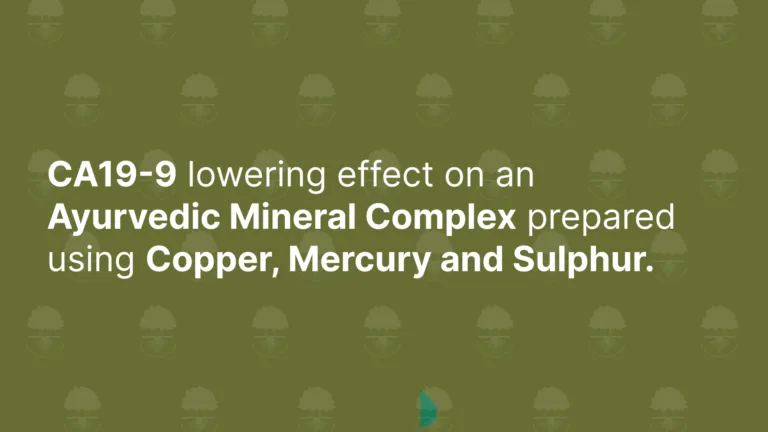
CA19-9 LOWERING EFFECT OF AN AYURVEDIC MINERAL COMPLEX PREPARED USING COPPER, MERCURY AND SULPHUR
Rasa Shastra, an Ayurvedic practice using metals and minerals, has shown that Ayurvedic Mineral Complex (AMC) helps reduce elevated CA19-9 levels in pancreatitis patients. This suggests AMC could be explored as a preventive therapy for pancreatic cancer.
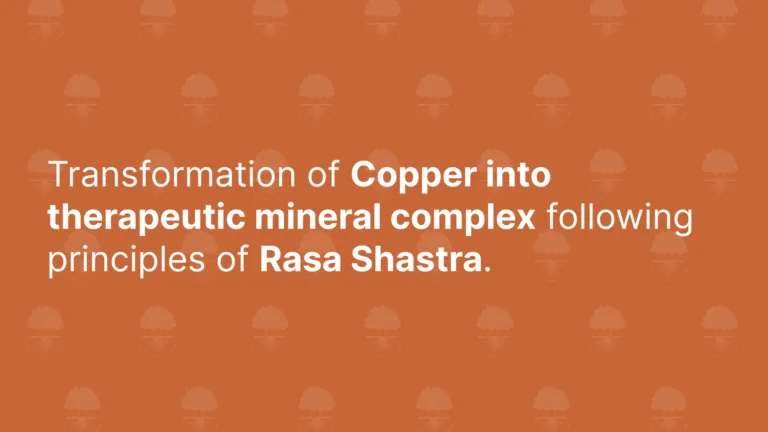
Transformation of Copper into therapeutic mineral complex following principles of Rasa Shastra
Rasa Shastra, an Ayurvedic branch, transforms toxic substances into safe therapeutics. A compound using Copper, Mercury, Sulphur, Luffa echinata, Clitoria ternatea, and lemon juice was effective in treating pancreatic disorders. The 2015-17 study developed standard procedures and analyzed the compound, revealing new mineral forms and no free metals. This demonstrates the potential of traditional methods in safely converting metals into effective treatments.
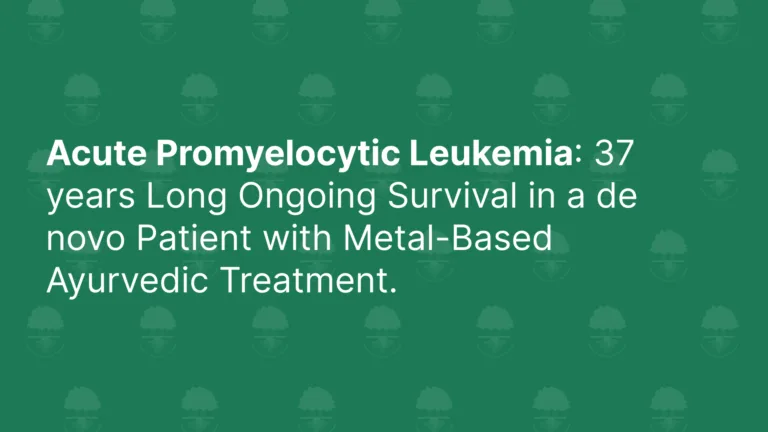
Acute Promyelocytic Leukemia: 37 Years Long Ongoing Survival in a de novo Patient with Metal-Based Ayurvedic Treatment
Acute promyelocytic leukemia (APML) is a subtype of leukemia marked by anemia, infections, and bleeding. It is diagnosed through bone marrow tests and the PML-RARα fusion gene. Recent treatments with ATRA and arsenic trioxide have improved survival rates, but challenges like side effects and relapses remain. A 1982 case of a patient who survived 37 years without standard treatment suggests potential alternative therapies.
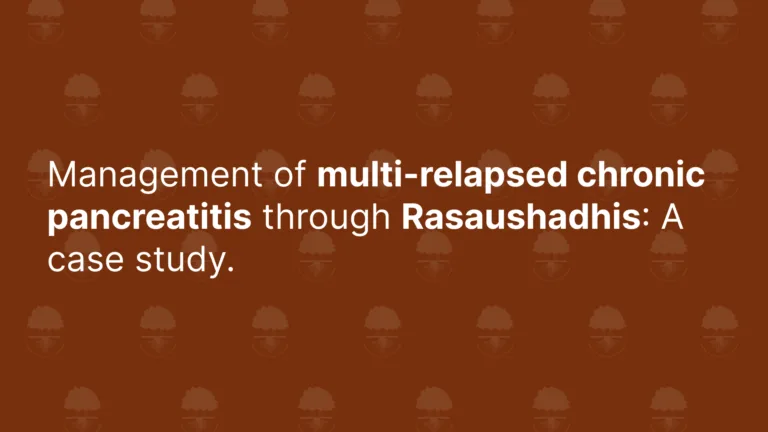
Management of multi-relapsed chronic pancreatitis through Rasaushadhis: A case study
Chronic pancreatitis causes irreversible pancreatic damage with limited treatment success and significant mortality. This case highlights a patient managed with Ayurveda, achieving nine years symptom-free and no disease progression.
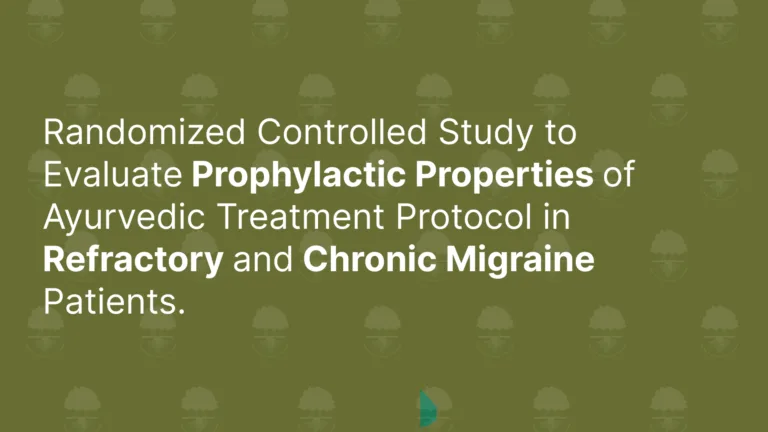
Randomized Controlled Study to Evaluate Prophylactic Properties of Ayurvedic Treatment Protocol in Refractory and Chronic Migraine Patients
This study compared Ayurvedic treatment to conventional therapy for chronic refractory migraine. After 360 days, the Ayurvedic group showed greater reductions in headache days, VAS, and MIDAS scores (p
